How the heck did fashion become such a man’s man’s man’s world?
It wasn’t always this way. The early twentieth century was awash with creative female designers, like Madame Vionnet, Coco Chanel, Elsa Schiaparelli, and Claire McCardell. And even when the boys’ club began to codify in the 1970s, with designers like Yves Saint Laurent and Andre Courreges and Karl Lagerfeld ruling the world, you at least get the sense that they worshiped women, rather than designing for their egos alone. Maybe it was the arrival of Claude Montana in the 1980s that ushered us here; maybe it was the bad boy artistes, John Galliano and Alexander McQueen, who made us think that we should indulge artistry at the expense of feminine contributions.
The point is that although today we have Maria Grazia Chiuri at Dior, and Virginie Viard at Chanel, and the indomitable Mrs. Prada at the helm of two brands (Prada and Miu Miu), there is still a dearth of female designers. And the prominence of women creative directors this season shows us exactly what you miss without them.
Many of the standout shows in New York were those by women designers, like Maryam Nassir Zadeh and Tory Burch. In London, the story seemed to be the same—perhaps even stronger.
The week started out with Chopova Lowena, the kilt-crazy brand from Laura Lowena and Emma Chopova, which pivoted from presentation to show. As they told me in an interview last week, their clothes already emphasize movement, even in a lookbook setting, but the runway debut gave them a chance to emphasize their shapes and finishings, and make them perhaps even more grandiose. Their clothes are complicated and luxurious, but they have a grounded power to them. They feel less like uniforms than gear—this season was inspired in part by lacrosse—which is to say clothing that gets you in the mood to conquer.
The weekend brought a triple threat lineup: Dilara Findikoglu and Molly Goddard on Saturday and Simone Rocha on Sunday. Findikoglu is a special bird. Her witchy clothing is sexy in a fabulously self-indulgent way. Not in the “sexy for a romantic partner” way or “sexy for my fashion friends way”—more in the way that a woman becomes entrenched in the world of a designer and adopts that as an aesthetic or lifestyle. Findikoglu has the potential to be a Rick Owens or Paul Harnden in the depth and singularity of her world. Her runway show was packed with odd statements and dresses I can only refer to as rare delicacies, like a mesh sheath artfully stuffed with the model’s Boticelli hair. If bodies are on display, it is distinctly for the wearer’s pleasure, as if to say, the most important person in the world loves me: me.
One thing the women of London share: they have a great idea and are able to build a whole world around it. Other brands struggle with this (I’m thinking, for example, of the way Jacquemus has become particularly Instaggrammy after the Le Chiquito was a smash hit, or the way Telfar fans focus on the bags far more than the clothes). But look at all that Molly Goddard has done with just a tulle dress (and a Rihanna dream!). Her clothes have evolved; she was thinking this season about red carpet dressing pre-internet along with the weird, morphed silhouettes of Charles James. (“He strove for perfection which isn’t something I’m interested in but more the exploration of creating shapes on the body,” as Goddard put it in the show notes. Very canny.) Her tulle temples were scaled back into simpler, more streamlined, and perhaps even humbler ideas, like a ribbed peplum top and subtly ruffled skirt in a children’s bookish toile print of little baby animals cavorting in a forest. Her ruffled dresses have calmed over the past few seasons into something like an overall or smock, which you can throw on over a T-shirt for insta-pizzazz or put with a little bralet and a hacking jacket for something more refined. That way of getting dressed, pulling yesterday’s T-shirt out of a pile on a chair or ritzing up something straightforward, seems particularly empathetic to women’s lives, which are so busy but get their verve and tempo from small day-to-day pleasures. Especially good were a clutch of swishy see-through skirts and a gown in electric-nature tones the colors of glowing cave bugs and one in a dull butter, and a drop waist cream dress with a heaving, romantic skirt that looked like lapped cream.
I think that’s just one of the powers of women designers: empathy. They can make clothes that a woman not only wants, but that she feels relate to her life. Sometimes that means the clothes are like a secret or intimate conversation shared between two friends. Another standout show was a designer who debuted in the London emerging designer incubator Fashion East, named Karoline Vitto. To call her a plus size designer isn’t quite right and undersells what she does, which is essentially worship and caress the body, especially the parts we tend to feel embarrassed by like underarms and stomach rolls, with jersey and wire.
And it was empathy that made Simone Rocha’s show on Sunday into a total wow. Rocha already had it all figured out: those big ruffled delights—wedding cake dresses which are pretty and occasionally gorgeous, always in a slightly strange way—have a dedicated fan base. But this season, she seemed to urgently take the magical drawbridge less traveled, because her clothes took on a new sophisticated glamour, polish, and emotional intensity. The show was pink and ruffly and filled with veils, but the slightly-more-structured silhouettes, plus the fine plainness of the fabrics and the carefully odd use of appliques and patterns, turned this into a strange brew of feminine majesty. (The collection was also her menswear debut, though to my eye it seemed as though Rocha is expanding her sizing and inviting already curious men more formally to the party.) It felt like an insistent statement that the frothy, the ethereal, the delicate, and the fragile are just as interesting (and maybe even more so) than the sturdy, the timeless, and the monumental. And maybe we all need to listen more to that side of ourselves.
Findikoglu is a niche taste (by design—and thank God for it, we need more designers who are just for the very few). But Rocha and Goddard both offer an extraordinarily contemporary view of the princess dress, complex and at times wonderfully contradictory. Why these brands don’t dominate the red carpet, I don’t know. They make women look comfortable, confident, a little wild, vulnerable but in control—really all the things you want to feel as a woman today. Consider this my plea to stylists to make that happen.
Two other shows that warrant mention from London: the new brand Standing Ground, which debuted in Fashion East, by menswear designer Michael Stewart. His ropey dresses that hug the collarbones and stretch across the hips are some powerfully erotic stuff. And finally: Jonathan Anderson. His goldfish-in-a-bag dress and Hari Nef in a shark fin T-shirt were the kind of sassy little tricks a senior year fashion student makes, done with a bigger budget and more design finesse. It made me think he might be losing his mind in the best way, and whets the appetite for whatever wackadoo stuff he’ll get up to in the Loewe show in Paris next week. He seems like a cartoon character hunching around with his ACME dynamite box, ready to press the little red button and cackle at the implosion of the status quo.
Rachel Tashjian is the Fashion News Director at Harper’s Bazaar, working across print and digital platforms. Previously, she was GQ’s first fashion critic, and worked as deputy editor of GARAGE and as a writer at Vanity Fair. She has written for publications including Bookforum and Artforum, and is the creator of the invitation-only newsletter Opulent Tips.
London Fashion Week Is a Woman’s World
Newspaper Updates PH
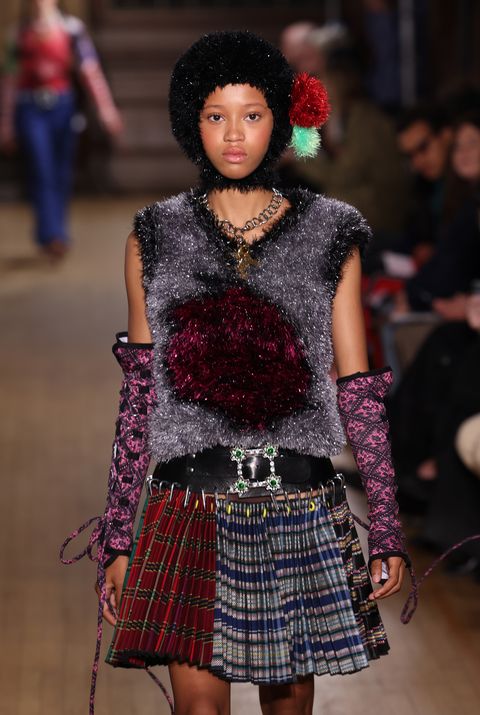
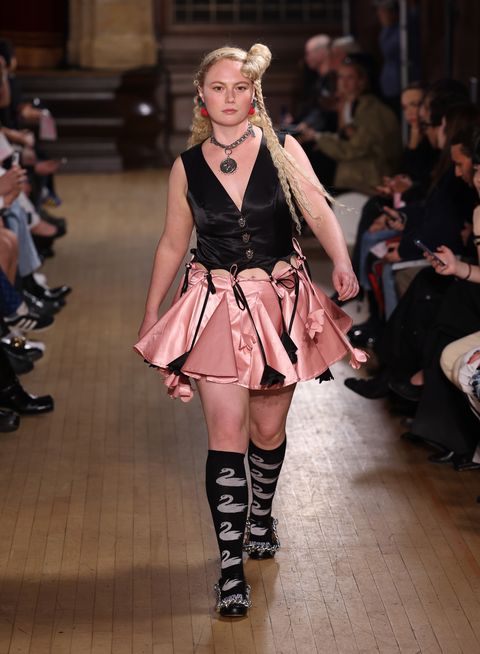
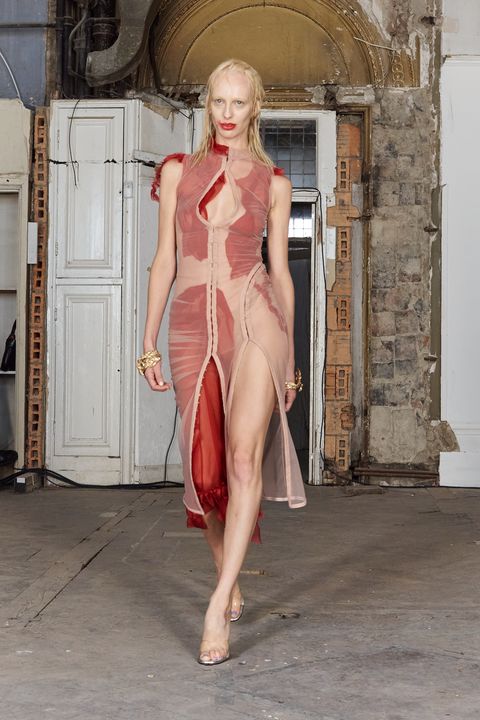
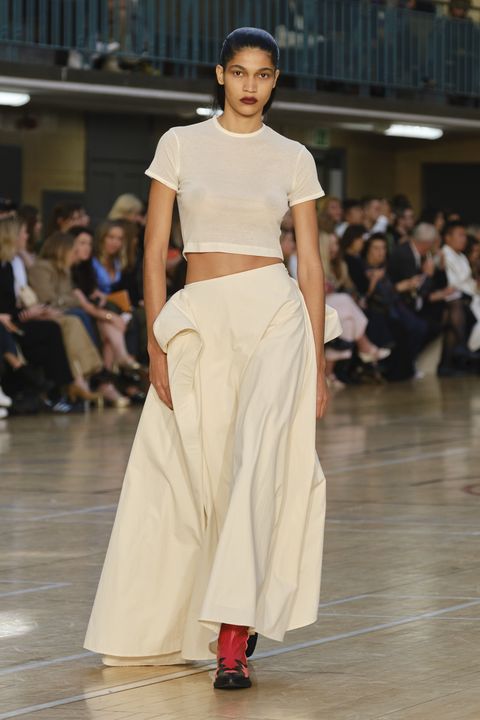
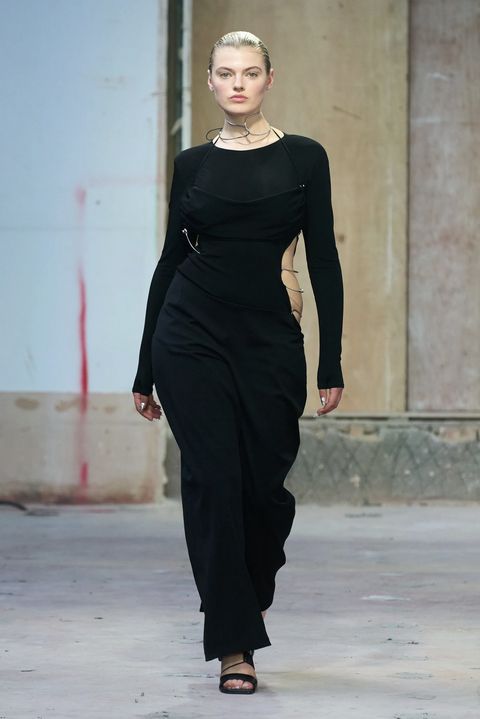
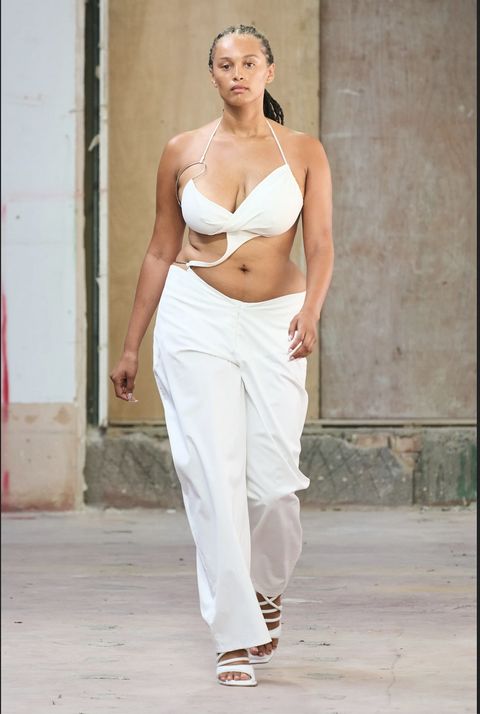
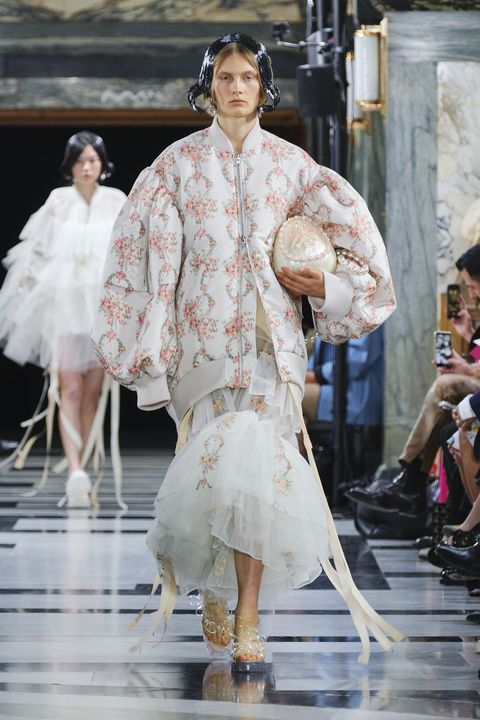
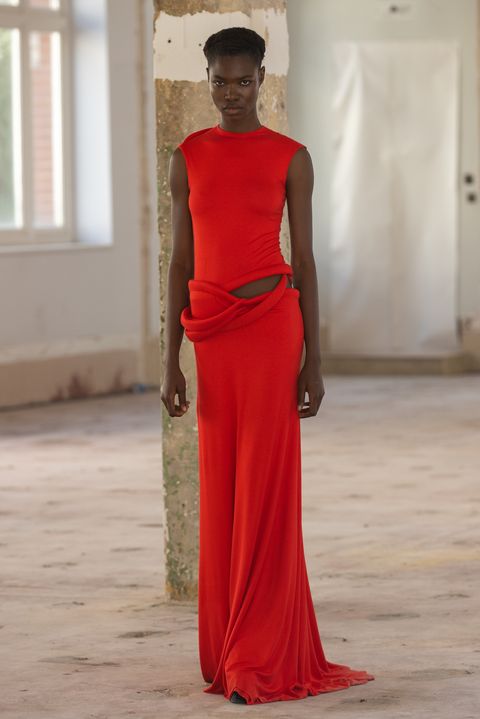
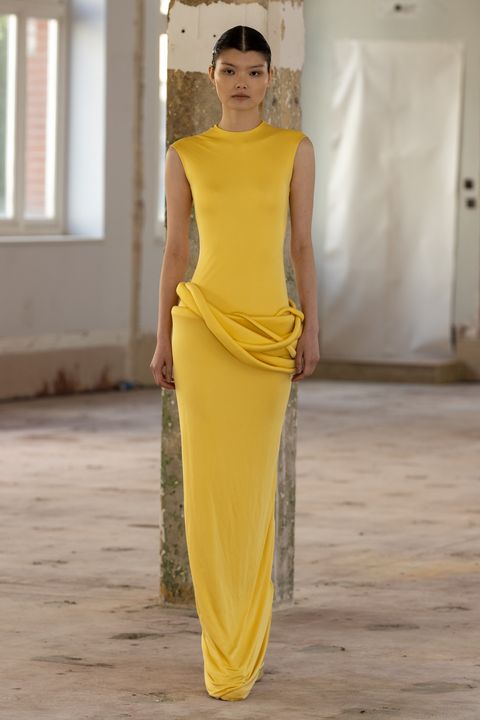
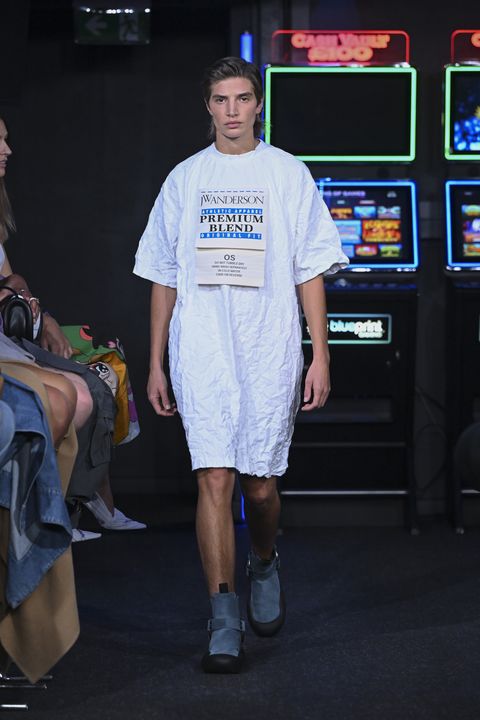
0 comentários :
Post a Comment